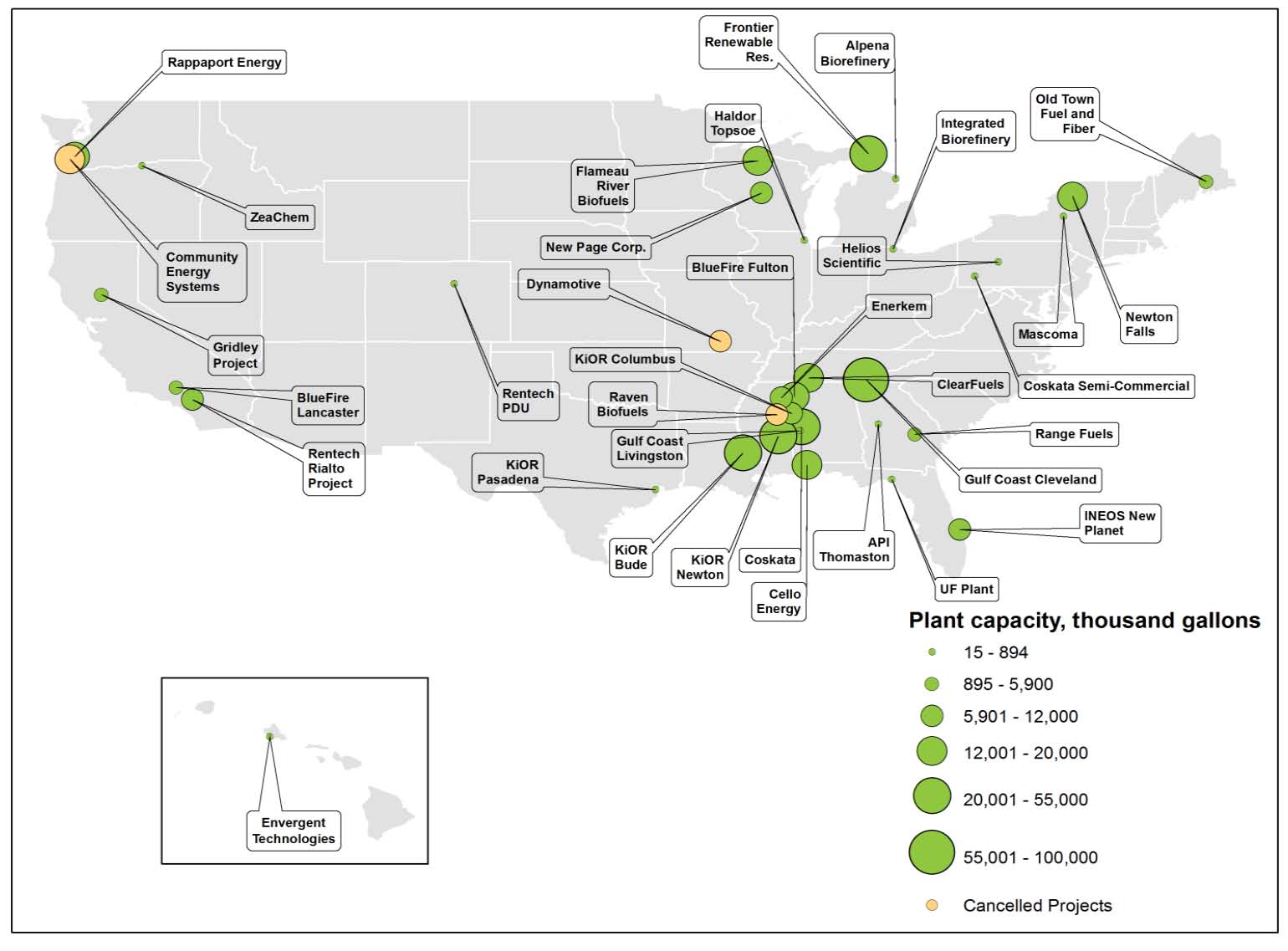Our team just published a study with the Schiamberg Group that evaluates the wood-based transportation fuel sector in the United States. The study builds on Forisk’s tracking and screening of all operating and announced wood-using bioenergy projects in the US (453 projects as of April 28, 2011; click here for summary). While wood pellet and wood-to-electricity projects use established technologies proven at commercial scale, wood biofuel projects continue to face major technological, feedstock and policy challenges. That said, there is a wide range of technologies and business models in development in the wood transportation fuels sector.
The study – Transportation Fuels from Wood: Investment and Market Implications of Current Projects and Technologies – includes the status of 36 cellulosic biofuel projects, estimated commercialization timelines for 12 technology approaches, and implications for bioenergy and timberland investors. The map shows all projects by location and size covered in the study.
Location of Operating and Announced Liquid Fuel Projects in US
These projects seek to convert wood to fuels including ethanol, butanol, diesel, gasoline, and jet fuel. Projects producing drop-in fuels appear to have superior potential for investors. However, major technical hurdles will likely disrupt commercialization for most technologies under development.
While the study finds an 11 year gap on average between estimated technology viability and firm announcements, it highlights promising approaches. This includes the gasification technology under development by firms like Rentech and ClearFuels for diesel and/or jet fuel. INEOS New Planet, Rappaport Energy and Coskata, and Kior are pursuing innovative approaches using gasification and microbes, and catalytic fast pyrolysis.
For more information about this study, please click here.


Leave a Reply